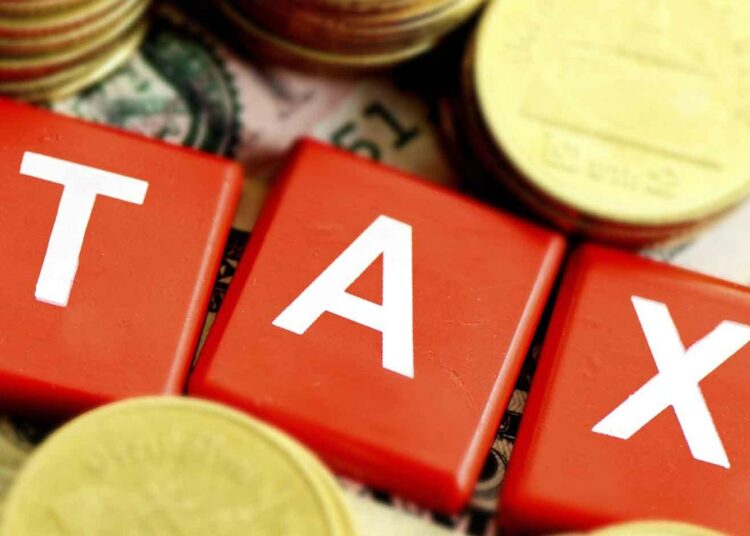Following the assent of the new tax law by President Bola Tinubu earlier in the week, experts expect it to resolve previous tax challenges while enhancing Ease of Doing Business in the country.
The Lagos Chamber of Commerce and Industry (LCCI) has projected an increase in non-oil tax revenues by N3.2 trillion over the next two years, pushing the tax-to-GDP ratio toward 12 per cent by 2027.
On his part, the immediate past president of the Chartered Institute of Taxation of Nigeria (CITN) Adeshina Adedayo described the signing as a welcome development that would boost the ease of doing business in the country.
“The bills that were signed into law are a welcome development and it will help businesses to navigate the challenges of tax with clarity, hence, it’s a welcome development. This will be a positive boost to the ease of doing business.”
Moreover, the head of Financial Institutions Ratings at Augusto&Co, Ayokunle Olubunmi said, with the signing of the TX bills into law, changes are expected within the fiscal system to allow for full implementation of the reforms.
Noting that the president now has the legal backing for the proposed changes in the fiscal system, particularly tax generation and administration, he added that, “while some changes in the fiscal system is expected in the next few months, the full impact of the proposed changes would be in the medium term given the structural reforms needed for the full implementation.”
Similarly, the director/CEO of Centre for the Promotion of Private Enterprise (CPPE), Dr. Muda Yusuf, highlighted that it is a significant step forward.
He believes this legislation will effectively tackle many challenges faced in tax administration, particularly issues like multiple taxation, outdated tax laws, and overall efficiency.
“With the incorporation of more technology, we can expect an increase in revenue generation, which is promising. While this development is encouraging, it is important to recognise that reform is an ongoing process. As the implementation unfolds, there may be areas that require adjustments to enhance its effectiveness,” Yusuf explained.
He added that “overall, this new tax law represents a constructive advancement for the private sector, manufacturers, and the wider community. It sets the foundation for continued improvement in our tax system.”
Meanwhile, LCCI has commended President Bola Tinubu’s government for signing four landmark tax reform bills into law, expected to significantly improve Nigeria’s trade competitiveness.
It added that, “the new tax laws will simplify tax compliance, reduce transaction costs, and support Nigeria’s export competitiveness under the African Continental Free Trade Area (AfCFTA). With a unified filing system and streamlined state and federal tax processes, businesses can expect compliance time to fall by up to 40 per cent.”
The director-general of LCCI, Dr. Chinyere Almona, stated that, “from a macroeconomic perspective, the reforms are expected to impact four major areas: inflation, trade competitiveness, tax compliance, and investor confidence. Unifying Nigeria’s complex and fragmented tax laws and the digital and institutional upgrades in the bills give the private sector a better platform to grow and compete.”
Almona noted that, “the potential impact of inflation is twofold. In the short term, as businesses re-price, the broader tax net and initial compliance adjustments may trigger a slight increase in core inflation, estimated between 40–60 basis points.
“However, in the medium term, the reduction of tax inefficiencies and a shift from monetary financing to sustainable revenue should help ease price pressures. The government’s fiscal projections anticipate headline inflation falling to 15 per cent by end-2026, compared to 27.6 per cent in May 2025. With essential goods and services now exempt from VAT, we expect this move to ease the cost of living for millions of Nigerians.”
She also said tax compliance is another area where the reforms are poised to deliver tangible gains, saying that Nigeria’s tax-to-GDP ratio, currently at 7.9 per cent, is among the lowest in sub-Saharan Africa.
She explained that, “from an investment standpoint, the reforms offer the predictability and transparency that domestic and foreign investors seek. Nigeria’s foreign direct investment (FDI) stood at a modest $29.83 million in Q4 2024, highlighting the urgency for reform.”
Almona added that, “we recognize that passing legislation is only the first step. Successful execution will require close coordination across federal, state, and local governments and robust monitoring and feedback from the private sector.
“We urge the immediate rollout of a public-facing implementation roadmap, beginning with pilot e-tax systems in high-volume states such as Lagos, Rivers, and Kano.”
LCCI called for robust and aggressive engagement with relevant stakeholders, saying, it is a template required for critical conversations regarding our nation’s economy and political cohesion, saying that “the next six months before the full implementation in January 2026 should provide sufficient space for pilot phases and ensure all gears are engaged for optimal performance.”
Also, the director/CEO of Centre for the Promotion of Private Enterprise (CPPE), Dr. Muda Yusuf, said this legislation will effectively tackle many challenges faced in tax administration, particularly issues like multiple taxation, outdated tax laws, and overall efficiency.
“With the incorporation of more technology, we can expect an increase in revenue generation, which is promising. While this development is encouraging, it is important to recognise that reform is an ongoing process. As the implementation unfolds, there may be areas that require adjustments to enhance its effectiveness,” Yusuf explained.
He added that, “overall, this new tax law represents a constructive advancement for the private sector, manufacturers, and the wider community. It sets the foundation for continued improvement in our tax system.”





